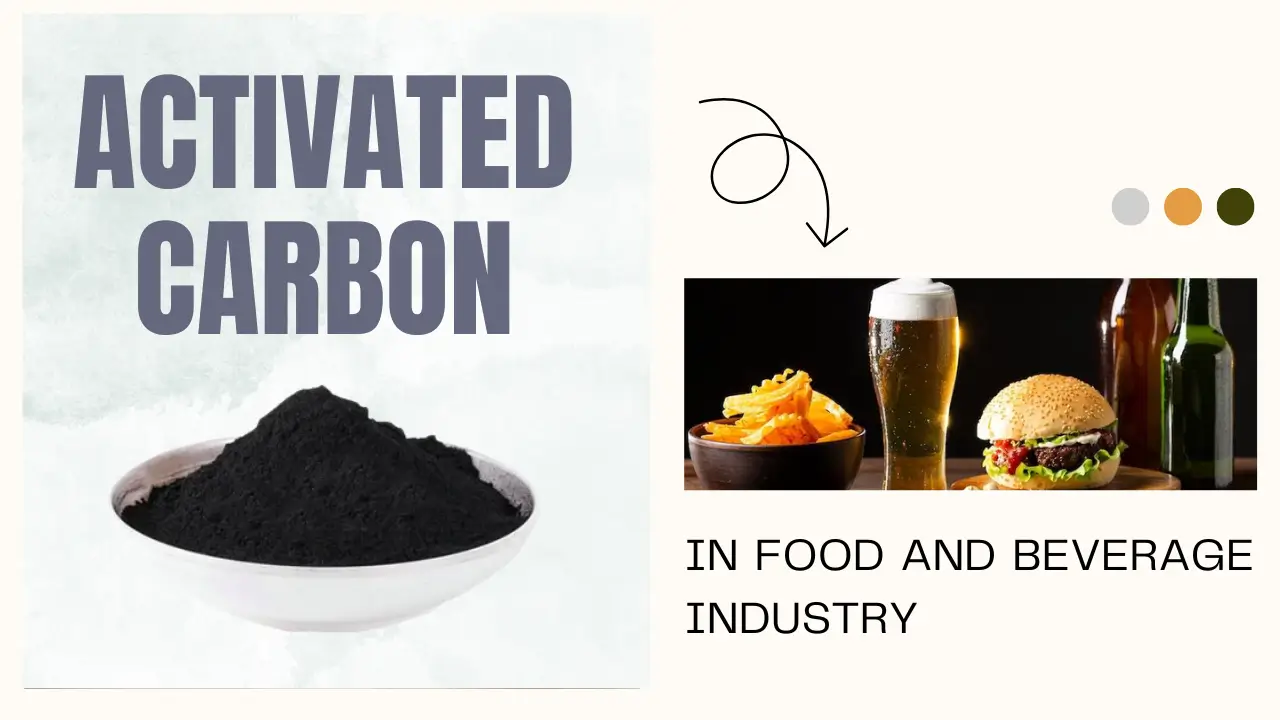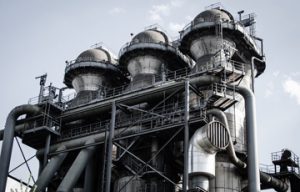Activated carbon, also known as activated charcoal, is a versatile adsorbent that plays a crucial role in various industries, including the food and beverage sector. Derived from organic materials, such as coconut shells, peat, or wood, activated carbon undergoes a specialized activation process that creates a high surface area with numerous pores. This unique structure enables it to effectively remove impurities, colors, odors, and contaminants from liquids and gasses.
In the food and beverage industry, activated carbon finds widespread application due to its exceptional purification and filtration properties. This article explores the various applications and benefits of activated carbon in the food and beverage sector.
Top Applications of Activated Carbon in Food and Beverage Industry
Purification of Drinking Water:
One of the primary applications of activated carbon in the food and beverage industry is the purification of drinking water. Municipal water sources may contain various impurities, such as chlorine, organic compounds, and heavy metals. Activated carbon filters effectively remove these contaminants, ensuring the water is safe and pleasant-tasting. Moreover, activated carbon also eliminates undesirable odors and flavors, enhancing the overall drinking water quality.
Decolorization of Beverages:
In the beverage industry, activated carbon plays a crucial role in decolorizing various products. For example, it is widely used in the production of alcoholic beverages like vodka, rum, and whiskey to remove unwanted colors and impurities acquired during the fermentation and distillation processes. Additionally, activated carbon is employed in the production of clear fruit juices and soft drinks, ensuring their appealing appearance.
Deodorization of Food Ingredients:
Certain food ingredients, such as oils and extracts, may possess strong odors that can negatively impact the final product's taste and aroma. Activated carbon is employed to deodorize these ingredients, removing volatile compounds responsible for the undesirable smells. This process is particularly important in the production of flavorings, essential oils, and cooking oils.
Removal of Toxins and Contaminants:
Activated carbon is widely used in the food industry to remove toxins and contaminants from various products. For instance, it is utilized in the purification of sugar, ensuring it meets the necessary quality standards. Moreover, activated carbon is employed to decaffeinate coffee and tea, eliminating caffeine while preserving the flavor and aroma of the beverages.
Preservation of Food Quality:
By adsorbing unwanted compounds and impurities, activated carbon aids in preserving the quality and shelf life of certain food products. For example, it is used in edible oil processing to remove oxidation products and maintain the oil's stability. Similarly, in breweries, activated carbon ensures the removal of off-flavors and undesirable compounds, contributing to the overall freshness and longevity of the beer.
Clarification of Syrups and Juices:
In the production of syrups and fruit juices, activated carbon is used for clarification purposes. It effectively removes suspended particles, impurities, and colloidal substances, resulting in clear and visually appealing liquids. The clarified syrups and juices have improved stability and enhanced taste.
Recovery of Sweeteners and Nutraceuticals:
Activated carbon is employed in the recovery of sweeteners like high-fructose corn syrup and nutraceutical compounds from various food processing by-products. The adsorption properties of activated carbon facilitate the separation of these valuable substances from the process streams, leading to their effective recovery and reusability.
Preservation of Wine and Spirits:
In the wine and spirits industry, activated carbon plays a critical role in maintaining product quality and consistency. It is used to remove excessive tannins, coloring compounds, and off-flavors from wine and spirits, ensuring a smoother and more refined taste. Moreover, activated carbon assists in wine stabilization, preventing post-bottling sediment formation.
Dechlorination in Brewing:
During the brewing process, chlorinated water can negatively affect the fermentation and yeast activity, leading to undesirable flavors in the beer. Activated carbon is employed to remove chlorine and chloramine from the water used in brewing, creating an optimal environment for yeast fermentation and preserving the beer's intended taste.
Refining Edible Fats and Oils:
In the edible fats and oils industry, activated carbon is utilized to remove impurities and contaminants, enhancing the quality and stability of the final product. It helps in the removal of free fatty acids, pigments, and other undesirable substances, ensuring the oils meet the required standards for consumption and culinary applications.
Reduction of Mycotoxins in Food:
Mycotoxins are toxic compounds produced by certain fungi that can contaminate various food products. Activated carbon is employed to adsorb mycotoxins, reducing their presence in food items such as grains, nuts, and dried fruits. This process helps prevent adverse health effects associated with mycotoxin consumption.
Conclusion:
Activated carbon's diverse range of applications in the food and beverage industry showcases its invaluable role in ensuring product quality, safety, and compliance with regulatory standards. From removing contaminants and impurities to clarifying liquids and enhancing flavors, activated carbon continues to be an essential tool for the food and beverage sector, supporting the production of high-quality and safe consumables. As technology advances, further research and innovation in activated carbon applications are expected, leading to even more effective and sustainable solutions for the industry.













